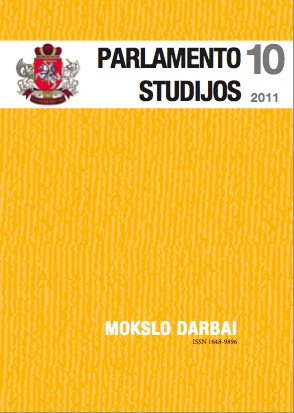Expanding Opportunities for Political Representation? Analysis of Lithuanian Parliamentarians’ Views on Gender Quotas
DOI:
https://doi.org/10.51740/ps.vi10.305Keywords:
political representation, gender quota, parliamentary elite, womenAbstract
Political theory and empirical research demonstrates that women’s political representation involves special post-communist structural (related to multi-party system development) and discursive (related to liberalization of the public sphere) contexts of new democracies. With the interview data from post-communist Lithuanian political elite, we confront experience of formal structural gender representation during the Soviet regime and observe deteriorating women’s parliamentary representation in the early democratic politics. Cognitive, emotional and normative stances of MPs (men and women) towards the issue of gender quotas provide useful tools to look deeper into the re-organization of the very principles and concept of political representation in new democracies. Based on materials of semi-structured interviews with Lithuanian parliamentarians (parliamentary term 1996–2000, n=11; and parliamentary term 2000–2004, n=28) we analyze variations of discourse concerning women’s political representation in general and establishment of gender quotas in particular. Our analysis reveals that neither political party affiliation, nor “contagion” effects, nor economic and social development related factors increase individual support for gender quotas and women’s representation in the parliamentary arena; the explanatory variable is the gender itself: most women MPs would support special measures (including quotas) for enhancement of women, but not men MPs. Furthermore, content of discourses and discursive resistance (against quotas) varies across the length of democratic experience and depends on the share of women MPs in the actual parliament: the fewer women parliamentarians, the stronger is their support for quotas; the later the period, the less are quotas associated with the despised soviet heritage. In addition, to reveal women’s quotas parliamentary situation-bounded supportive discourse, but not growing feminist consciousness in general, we also suggest some implications related to intersection of gender and political party affiliation.








 The metadata of the scholarly journals and publications of the Lithuanian National Martynas Mažvydas Library is distributed by
The metadata of the scholarly journals and publications of the Lithuanian National Martynas Mažvydas Library is distributed by 